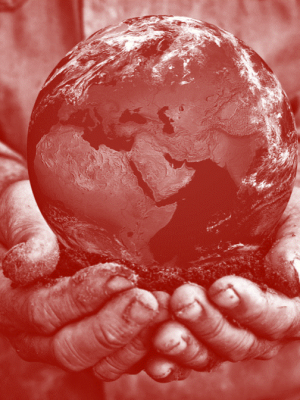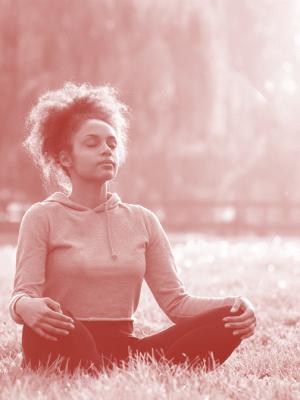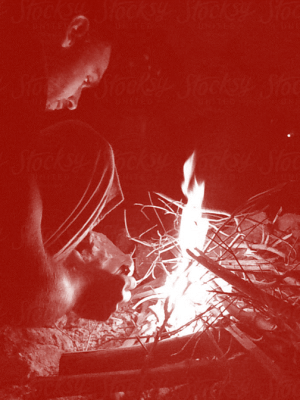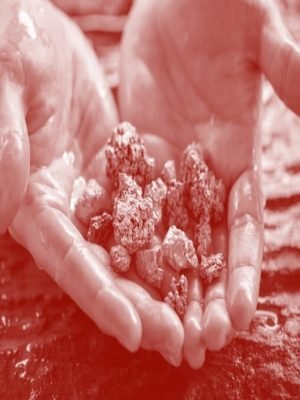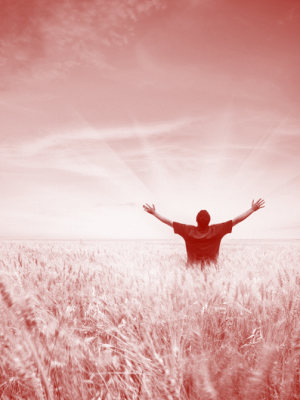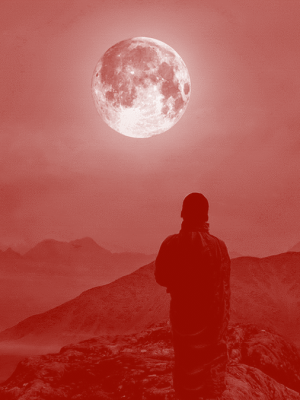Communion with Water
appreciating the life-giving elements
of mists, rain, rivers & oceans
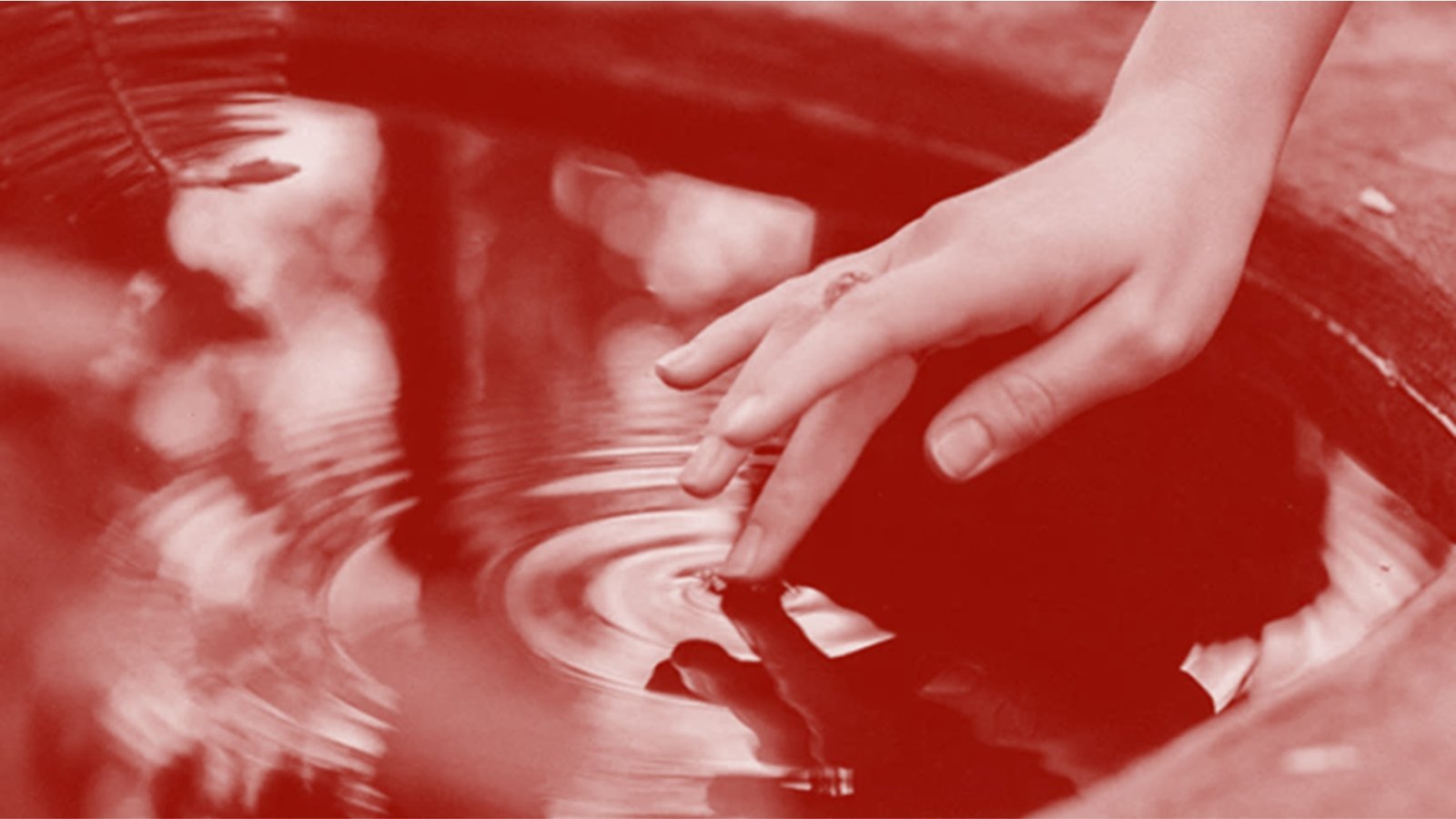
The daily practice of contemplating and honouring the element of water is usually carried out by communitarians before or immediately after the observance of Sunset. It is common for communitarians to bathe at this time of day in preparation for gathering for the communal meal. While bathing, communitarians make a conscious effort to focus their attention on the principles and practices of Liberated Love, including reflecting on the attributes of patience, inclusive affection, evolved sexual expression and psychosexual progression.
Through communion with water, communitarians are daily reminded that for love to be truly liberated, it must flow freely – as freely as life-giving water falls from the sky to sustain the life and liberty of people, plants and planet. It is during these periods of contemplation that communitarians examine their thoughts, words and deeds with the aim of uncovering and correcting negative personality traits that give rise to social offences that disrupt and impede the harmony of communal living and loving.
The best way to live is to be like water, for water benefits all things and goes against none of them.
It provides for all people and even cleanses those places a man is loath to go – Lao Tzu
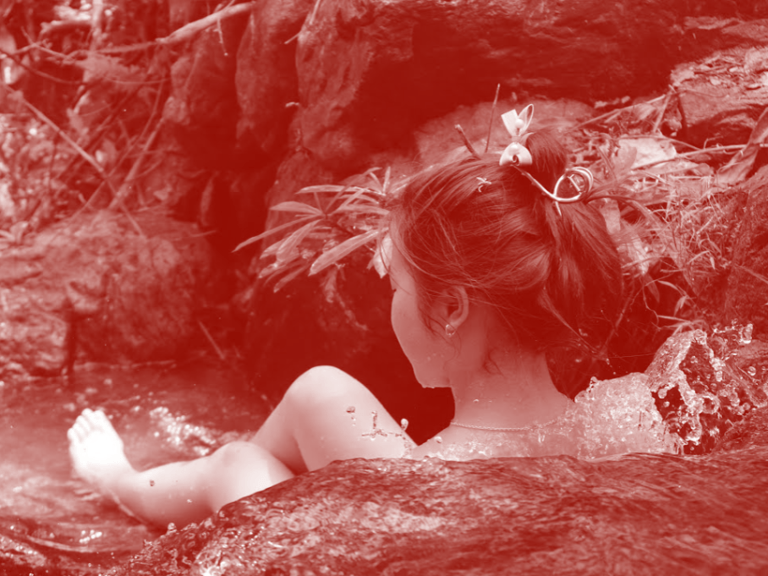
Communing with water through Bathing
Taking time at sunset to commune with water provides a specific marker in the day that calls communitarians to reflect upon personal progression toward establishing inner and outer health through attention to maintaining a diet of living nutrition as well as social and sexual hygiene.
Devoting time at the end of the day to bathe in living water while contemplating the attributes of ‘Liberated Love’ enables communitarians to come to the table both physically and mentally cleansed of inclinations of possessiveness, jealousy, selfishness, self-promotion, vanity and sloth. During this period of cleansing, communitarians reflect upon the importance of recognising and overcoming the draw toward withdrawing into sexual fantasy rather than remaining present and open to giving and receiving evolved sensual expression offered by those practicing liberated love founded on the principles and practices of ‘complex union’.
While bathing, communitarians also reflect upon the personal and collaborative progress made toward productive contribution to ‘Right Livelihood’ activities such as the restoration and extension of natural ecosystems that include forests, rivers, wetlands and coastal regions to regulate the water cycle, moderate temperature, increase the fertility of the soil, feed everyone and protect and encourage optimal biodiversity of people, plants and animals.
Reflecting upon ‘right use’ of the Earth’s resources while bathing, helps communitarians become ever mindful of their duty to conserve and recycle this precious resource where ever possible.
A Free Gift from the Universe
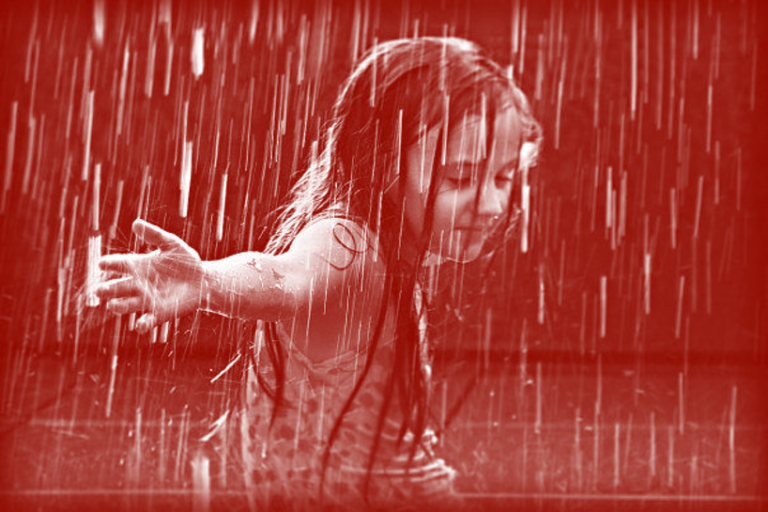
In Secret Life of Water, Masaru Emoto explains that all water originates in the universe, a world stretching into all eternity. While moving through space, water’s form is clumps of ice. After a long journey through Ether – the element which is both nothing and everything at the same time, the grand journey comes to an end when Earth attracts it into its atmosphere. There, high above the emerald green planet, it begins to break up – becoming smaller, spreading out, forming mists and clouds until finally, it falls as rain, filling rivers emptying into the great expanse of sea that unites every landmass spanning a circumference of 24,901 miles or 40,075 kilometres.
When Masaru Emoto describes clouds as art evolving moment by moment, it is clear he has spent many days and nights contemplating the beauty and magnificence of this wonderous element – a free gift from the cosmos that makes life possible for people, plants and planet.
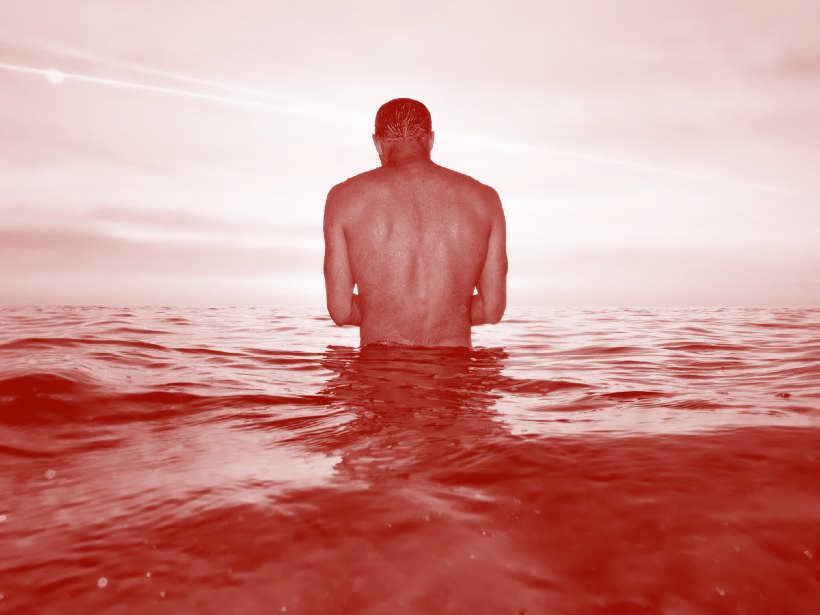
Contemplating the Nature of Water
Taoist philosophy equates water to the blood of the Earth flowing through its muscles and veins. As the element that gives birth to all life, Taoists have always revered water as the element representing humility, gentleness and a mind in perfect repose.
The founder of Taoist philosophy, Lao Tzu, spent many days and nights contemplating the attributes of water. His insights helped to shape the course of human development by way of presenting many profound junctures between the greater expanse of the cosmos, and the Earth our only home. Lao Tzu reasoned that the things stored up in the Earth, including water, comes forth in metal and stone and is concentrated in all living creatures.
‘Therefore, it is said that water is something with a spirit. Being accumulated in plants and trees, their stems gain orderly progression, their flowers obtain proper number, and their fruit gain proper measure. It congeals to form man. . . that is its most refined essence. . .
Nothing is produced without it.
Only he who knows how to rely on its principles can act correctly.’ – Lao Tzu
Similarly, the Chinese philosopher Confucius whose message of knowledge, benevolence, loyalty, and virtue were the main guiding philosophy of China for thousands of years, also practiced daily contemplation of the nature of earthly and cosmic elements, including water. Confucius observed that ‘water’, which extends everywhere and gives everything life without acting, is like virtue.
‘As water shapes itself to the vessel that contains it, so a wise man adapts himself to circumstances.’ – Confucius
The famous artist, scientist and inventor, Leonardo da Vinci, also devoted a great deal of time to contemplating the relationship between humankind and the earth as well as the larger context of the mysterious and majestic universe. Through contemplating the nature of water, da Vinci recognised that it was not simply a pool of fluid, but rather that it was part of the earth’s blood with a physiology of its own caused by the shape of its topography, or anatomy.
‘While man has within himself bones as a stay and framework for the flesh, the world has stones which are supports of earth.
While man has within him a pool of blood wherein the lungs as he breathes expand and contract, so the body of the earth has its ocean, which also rises and falls every six hours with the breathing of the world; as from the said pool of blood proceed the veins which spread their branches through the human body, so the ocean fills the body of the earth with an infinite number of veins of water.’ – Leonardo da Vinci
Da Vinci’s daily contemplations of earthly and cosmic elements helped develop his ability to understand the interconnectedness of diverse aspects of the world and also how and why his own nature was intertwined and inseparable from the laws of the universe, including the over-arching principle of cause and effect that governs everything.
‘Water is ‘the most living part of nature’ – so it is ‘the blood of the Earth.’ Water is the model for philosophical ideas about the nature of the cosmos. It is also the model for personal conduct and for life itself.’ – Henry David Thoreau
The American philosopher, poet, environmental scientist and author of Walden, Henry David Thoreau, often spent whole days for months at a time, contemplating the relationship between rivers, ponds and even swamps, and the weave of interdependence on the wider array of the cosmic elements that affected their shape and substance. Through daily contemplation of earthly and cosmic elements that shape and sustain life, Thoreau arrived at profound insights relating to mankind’s place and purpose in the world.
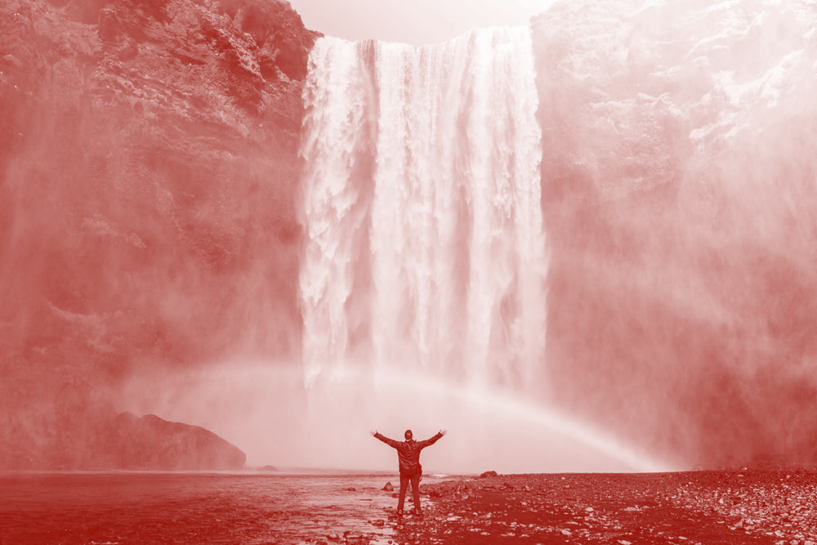
Air Is Free & So Are We
In the second year of association and beyond, practicing daily communion with water reminds communitarians of the principle and practice of unity. The central aim of this observance is to bring the attributes of peace-maker forefront of the mind every time we bath and also take water into the body. Through practicing communion with water, communitarians are reminded of the precious free gifts provided by this cosmic element.
Water’s main characteristics are resiliency, fluidity or adaptability. Aligning our personalities with the positive attributes of water, necessitates a willingness to change our habits, routines and mindsets when change is required. Rather than stubbornly, or slothfully remaining fixed in patterns that no longer serve us or anyone else, through daily reflection, communitarians make a conscious effort to adapt to situations at hand.
While contemplating the positive characteristics of water, urges communitarians toward developing their characters in line with the attributes of flexibility and adaptability, that does not mean we are directed to passively ‘go with the flow’ without using intelligent discernment as to the potential designation of that flow.
Through diligent personal study and also participation in the group Gestalt Provings, communitarians move closer to acquiring the knowledge and skills of nonviolent communication and action that installs the conduits of inner and outer peace. Gestalt practice draws those who diligently strive to master the art of personal and social refinement, toward a centredness that allows us to flow quietly, yet persistently around the obstacles that stand between us and the common good. With patience and resilience, even the largest of seemingly immoveable boulders are worn down to grains of sand, over time.
Furthermore, living our lives aligned with the principles and practices of communitarian lifestyle and love-style, often necessitates that we swim upstream to stand against injustice and cruelty.
Determination to align our personal characters with the attributes of water is the perfect antidote to inclinations of force as well as unrefined courses of defence which include verbal and physical violence. Likewise, contemplation of water also transports communitarians toward awareness that pushing against obstacles as a way of getting things done or else resolving conflict, more often than not, results in little more than delaying desired results as well as escalating conflicts. Opening doors and going through doors that are not already open, usually achieves no more than wasting time and effort meeting with dead-ends or outright distractions that lead far from personal progression or inclusion in complex union.
Striking a balance between moving personal and collaborative projects forward, and not forcing people or situations to fit within rigid preconceived personal or group agendas, is an all-important essential skill-set that must be mastered before integration into satisfying and secure complex union can be achieved.
Communion with water brings communitarians to a state of flow where preconceived agendas and pressure as well as anxieties about the future and the failing of the past, can be released and resolved. Daily contemplation of the characteristics of water, helps to draw us toward being fully present to focus on the tasks at hand.
‘Nothing in the world is as soft and yielding as water. Yet for attacking the hard and strong none can triumph so easily. It is weak, yet none can equal it. It is soft, yet none can damage it It is yielding, yet none can wear it away.
Everyone knows that the soft overcomes the hard and the yielding triumphs over the rigid – Tao Tzu
Unity with Nature
It is common for communitarians to spend part or all of the weekly Personal Day of Rest near an open source of water, such as a stream, river or the ocean. Taking time out to bond with nature is a vital component of maintaining both physical and mental wellness.
Dabbling our feet in a cold mountain stream, or swimming in the sea, helps relieve stress, dissolve fatigue and put our problems into perspective. Spending time in and around natural bodies of water such as the sea, helps to broaden our relationship and perception of the world and our place and purpose in it.

